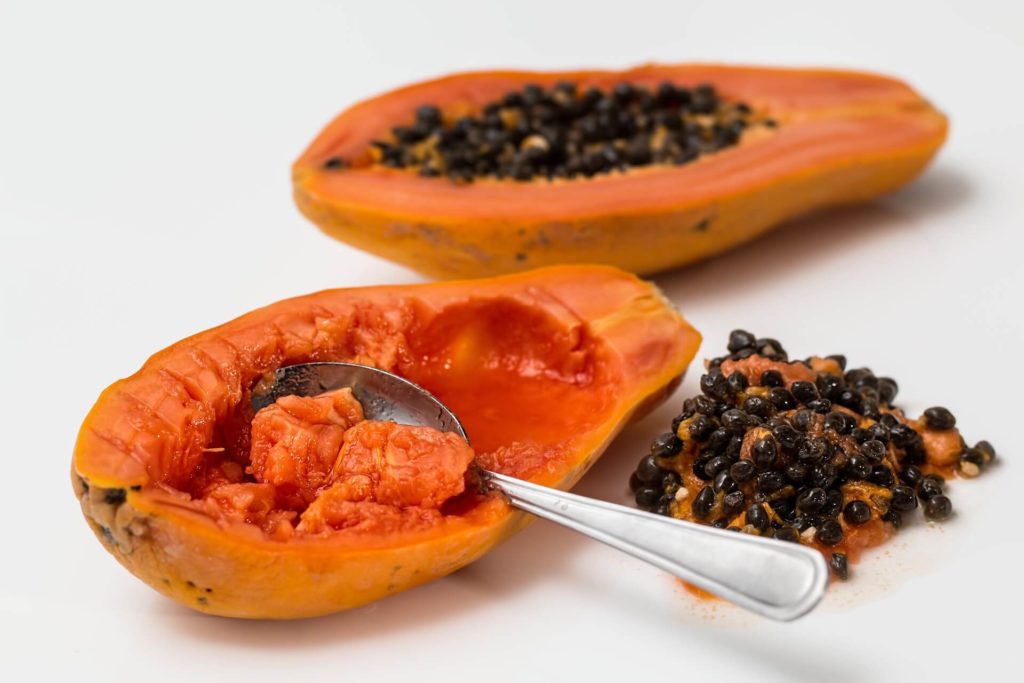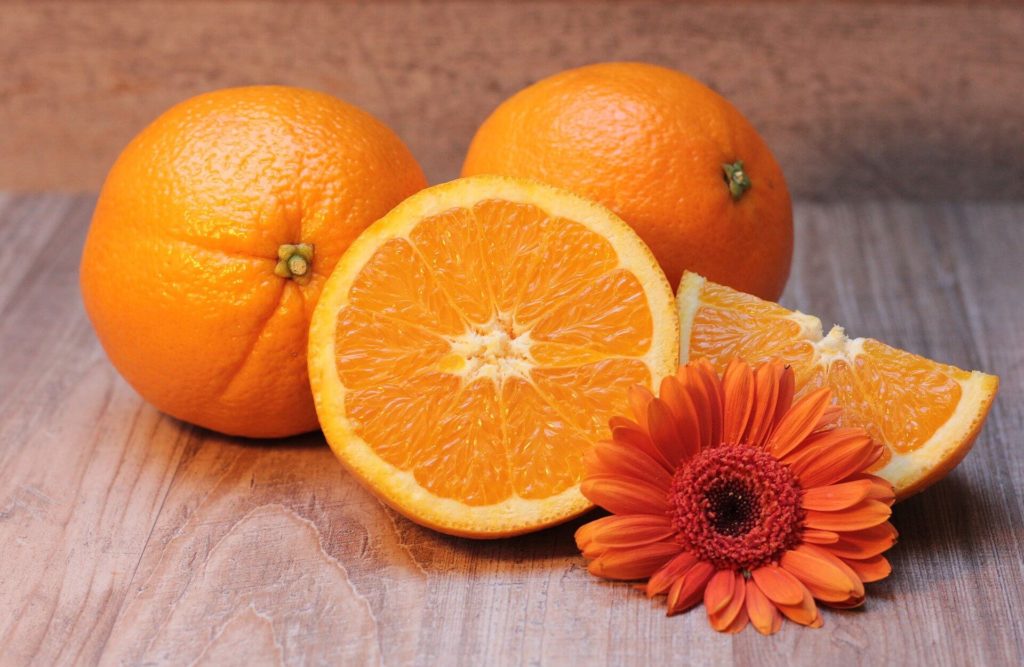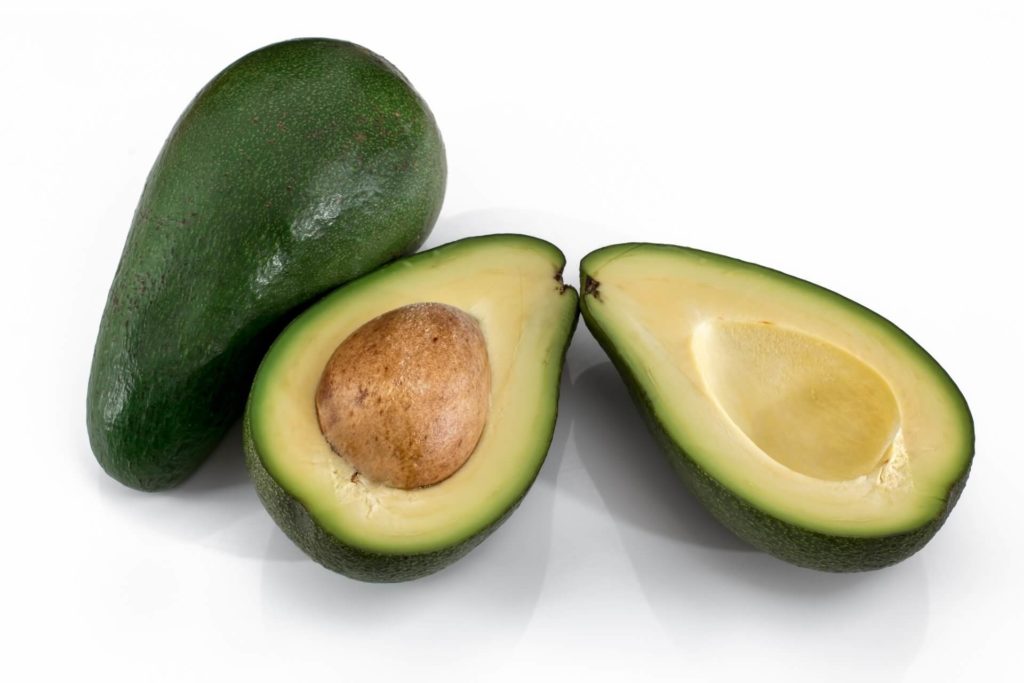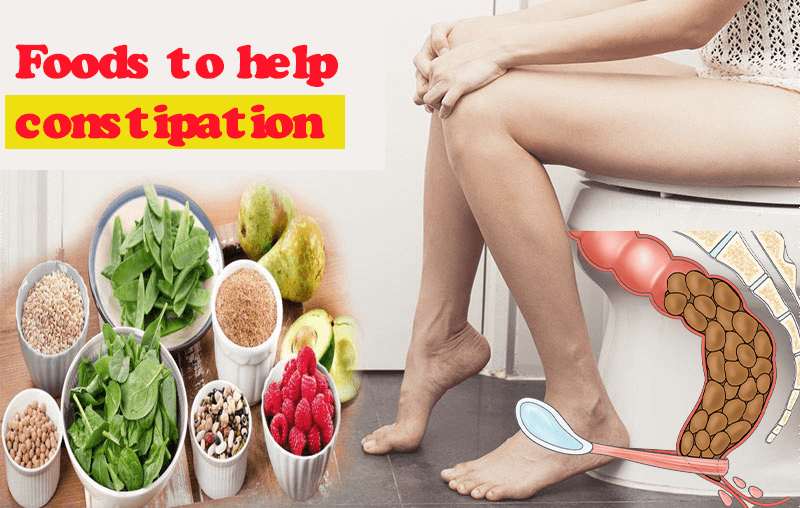Laxative fruits such as papaya, orange and plum are excellent allies in combating constipation, even in people with a long history of suffering from this intestinal problem.
These fruits contain large amounts of fiber and water, which accelerates intestinal transit and promotes the formation of faeces. In addition to this, fruits also increase satiety, improve metabolism and help you lose weight.
These fruits can be consumed daily, both fresh and in natural laxative juices and fruit salads. They can also be used by babies and children, but in smaller quantities so as not to cause diarrhoea.
See below the 10 most laxative fruits that help in weight loss:
Papaya

Laxative fruits for constipation
The papaya also called milkily is rich in water and fiber, being quite known for its ability to help in the intestinal function. It contains 1 g of fiber, about 11 g of carbohydrate and 40 kcal per 100 g, in addition to nutrients such as magnesium, potassium and vitamin C.
Orange

The orange is rich in water, which hydrates the intestine and faeces, besides this, it is a fruit that contains a lot of bagasse, synonymous of fibers for good intestinal functioning. One unit of orange has about 2.2 g of fibers, which is more than the fibers of existing in 1 slice of wholemeal bread, for example.
However, it is important to remember that orange juice has practically no fiber, since when the fruit is squeezed the bagasse ends up being wasted along with its peel.
Plum
Laxative fruits for constipation
The plum, both in the fresh and in the dehydrated form, is rich in fiber and is good food for the intestine. Each unit of black plum has about 1.2 g of fibre, in addition to providing phosphorus, potassium and B-complex vitamins for the body.
An important sign is that when consuming dried plums it is important to check the product label for added sugar, which greatly increases the plum’s calories and promotes weight gain. So, it is best to buy dried plums without added sugar.
Chamomile
Apple, also called acerola or semeruco, contains about 1.5 g of fiber per 100 g of fresh fruit, and only 33 kcal, which makes this fruit a good ally of the diet and the intestine. In addition to this, this same amount of chamomile brings 12 times the amount of vitamin C recommended for an adult per day, being much richer in vitamin than fruits like orange or lemon.
Don’t miss this: https://buzzrecipes.com/foods-to-avoid/
Avocado

Avocado is a champion in fiber content: 100 g of this fruit contains about 6 g of fibers. It is also rich in fats that are good for the body and which facilitate the passage of faeces through the intestine, as well as promoting cardiovascular health and improving levels of good cholesterol.
Banana
Despite being known as a fruit that supports the intestine, each banana contains at least 1 g of fibre. The secret is to eat this fruit when it is very ripe because then its fibres will be ready to help in the intestinal transit. On the contrary, whoever wants to control diarrhoea should eat the banana while it is still half green, as its fibres will serve to harden the faeces and decrease diarrhoea.
Even more powerful than the fresh fruit is the green banana biomass, as it has high fibre content and is naturally a prebiotic food, which promotes the health of the intestinal flora.
Fig
Two units of fresh fig contain about 1.8 g of fibre and only 45 kcal, which generates quite a lot of satiety and keeps hunger away for longer. Just as with plums, when buying dried figs, preference should be given to those with no added sugar, and it is necessary to check the list of ingredients on the product label.
Kiwi fruit
Each kiwi has around 2 g of fibre and barely 40 kcal, making this fruit an excellent ally of the intestine and slimming diets. Besides this, 2 kiwis contain all the vitamin C an adult needs per day, having high antioxidant power, helping to prevent diseases and improve skin health.
Laxative fruits for constipation
Pomarrosa
Despite being little consumed, pomarose is one of the richest fruits in terms of fibre: 1 unit contains about 2.5 g of fibre, often found in 2 slices of wholemeal bread. In addition, it has only 15 kcal per fruit, much less than most other fruits, making it an excellent ally for losing weight and reducing anxiety.
Pea
Each pear, when eaten in the shell, contains around 3g of fibre and only 55 kcal, making it one of the most important fruits for helping the intestine. A good idea to lose weight is to eat a pear about 20 minutes before a meal, as its fibres will act on the intestine generating a feeling of satiety, which reduces hunger at mealtime.
Astringent fruits
Some fruits that make the stools harder are apple and pear without skin, guava, banana, mainly banana still green.
These fruits should be avoided by people with constipation, at least until the intestinal transit is normalized. However, with a healthy diet rich in fibre, all types of fruit can be eaten without causing stress.
Tips to combat constipation
In addition to increasing consumption of laxative fruits, some simple tips to combat constipation are
- Consume fruits with peel and bagasse whenever possible, as they are rich in fiber;
- Prefer to eat raw vegetables, as they have more power to speed up the intestinal transit;
- preferring whole foods like rice, wheat flour, noodles and wholemeal biscuits;
- Consume seeds such as chia, flaxseed and sesame seeds in juices, salads and yoghurts;
- Drink at least 2 litres of water a day, as it helps in the formation of faeces along with fibres and hydrates the intestine, allowing the faeces to pass more easily through the digestive tract.
- In addition to these tips on nutrition, it is also important to do regular physical activity, as exercise stimulates the intestine and keeps it active, facilitating the passage of stool and fighting constipation.
Watch this video:

